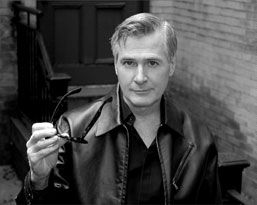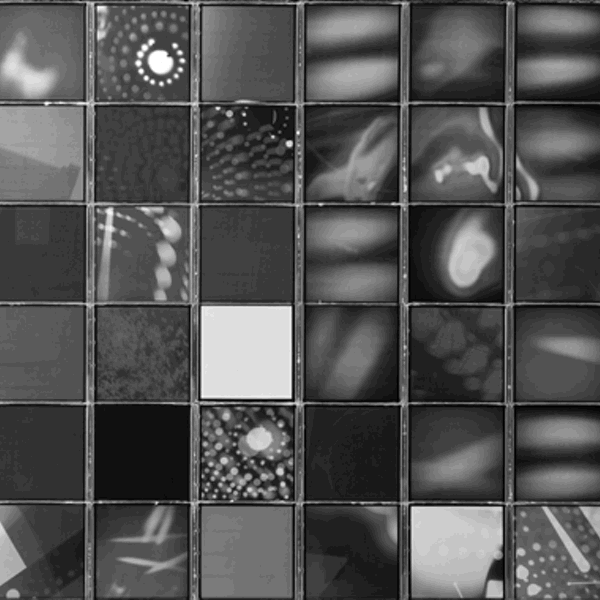
For a luminous example of theatrical symbiosis, look no further than the two-decade relationship between playwright John Patrick Shanley and the Powerhouse Summer Theater program at Vassar College. Since 1985, Shanley has brought six plays in embryonic form to this annual showcase for new work, beginning with 1985’s “Savage in Limbo” and a 2004 reading of the drama “Doubt.” A drama about an alleged child molestation by a priest, “Doubt” blooms into a universal meditation on the incidents which test faith of all stripes. That play would win the 2005 Pulitzer for drama, giving Powerhouse attendees bragging rights for a lifetime and giving Shanley, a fearless grappler of serious issues, a distinction far weightier than the 1988 Oscar for penning the crowd-pleasing Cher vehicle Moonstruck.
A Pulitzer has not, however, turned Shanley into an erudite sourpuss. He’s back at Powerhouse for its 23rd season with “Romantic Poetry: A Musical Play,” starring Anastasia Barzee, Powerhouse co-founder Mark-Linn Baker and newcomer Patina Miller, July 19-29.
Shanley’s play is just one of a banquet of plays, musicals and readings to bow this summer on the Vassar campus, under the auspices of New York Stage & Film. (Also on the boards will be "R-E-S-P-E-C-T," a ‘60s civil rights musical, "Geometry Of Fire," which touches on the American fallout of the Iraqi invasion, and a new rock opera by Pete Townshend called "The Boy who Heard Music.") The Powerhouse program provides a venue for new voices and a space to experiment for established ones, no mean feat when bottom-line finances force many theaters to play safely with revivals. (Hopefully, the dazzling variety of original shows on Broadway this season like “The Coast of Utopia” and “The Little Dog Laughed” will change that defeatist mindset.)
Speaking from his Manhattan apartment, Shanley explained how he’s currently multi-tasking, nurturing the Powerhouse show while also preparing to direct the film version of “Doubt,” starring Meryl Streep and Philip Seymour Hoffman. His Bronx accent as thick as mustard on a Yankee Stadium frank, Shanley is alternately playful and meditative.
JB: Why does the structure of the Powerhouse program work for you?
JPS: Well, a lot of reasons. One is that New York Stage & Film has a pretty good relationship with a pretty deep pool of talent from actors to directors to designers. So, they get a really good circle of people to go up there and collaborate on various projects. Then, the physical plant of Vassar itself is just an incredibly beautiful place. A thousand acres, ancient trees and a very good vibe. So it’s a really lovely setting in which to work, and artists are very sensitive to their environment. If you put them in a beautiful place, they are likely to generate more pleasing things.
Let’s talk about the working conditions at Powerhouse. Here you can revise something up until the last performance. Is that the way you work? Constant changes until the final staging, or is the mold set from the beginning?
No, I continue to work on every show that I do, and every day is another opportunity to get it right. You keep on struggling ‘til they drag you away.
For “Romantic Poetry: A Musical Play,” you are working with lyricist Henry Krieger [Dreamgirls]. At one point, there was a Moonstruck musical in the works with Krieger.
Yes, that’s how we knew each other and we worked together on that for a couple of years, and we hit a roadblock on that—not due to any one person but a confluence of things. We put it aside for a time. I wouldn't be surprised if we returned to it. Then we did this collaboration.
Initial information on your Powerhouse project is sketchy. Can you peel back the curtain a bit?
“Romantic Poetry”—it’s funny. And it’s basically a play on the theme of finding
those soaring romantic moments in modern life, and how that works, and how people even now can speak like Romeo or Cyrano in the language of today, in situations that exist today—the balcony scenes—and things work out and don’t work out in tormented and comic ways. So the first act describes the bright side of the moon—you know, romances that work out. And the second act describes the dark side of the moon—and the people who live there. Both are comic with dramatic undertones and there’s a heck of a lot of very good music.
Did you have any favorite musicals in mind when you sat down to create this?
I certainly did not. I wanted to write something that broke the mold a bit, and was the kind of musical I wanted to see. And the kind of musical I want to see now is different than what’s being generated on Broadway.
So you don’t agree with critics that “Grey Gardens” and “Spring Awakening” are the new gold standards for the Broadway musical?
They’re very admirable. It’s not what I want to do. I want to do something else. And—I just want to say first, I did a benefit reading of the show last week and the audience went berserk. They had the time of their lives, because it’s kind of like a cross between a revival meeting and a mad love scene. The idea of romantic poetry in the 19th century was a confluence of nature, love, and the divine. Those are the three things I’m weaving together in the show.
How far along is the show?
Quite far along; we’ve already had offers to do it in New York.
Ben Brantley of the New York Times, in the review of your 2006 play “Defiance,” called you “a fierce moral sage.” Do you feel you have a clear moral stance in every one of your works, or—
Morality is an ever-shifting paradigm. And you have to embrace the fact that the only way to know what is right or wrong at any given moment is to live that moment. There is no dogma you can turn to; there is no book that can tell you in the abstract what to do in the concrete reality of time as it’s unfolding in front of you. You gotta shout out with everything you've got and intuit whether you should go left or right.
The Powerhouse Theater at Vassar season runs June 27 through July 29. For a complete schedule and tickets: (845) 437-7235; http://powerhouse.vassar.edu.















